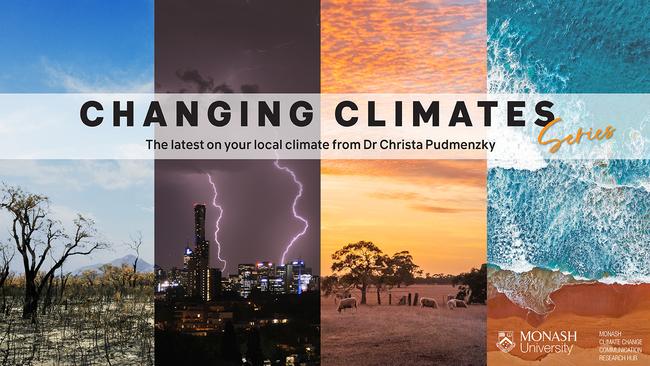Rising temperatures are posing a threat to our most beloved Aussie animals
Dr Christa Pudmenzky hosts Ipswich's Changing Climates series, and unpacks how rising temperatures are impacting our iconic wildlife.

Hyperlocal
Don't miss out on the headlines from Hyperlocal. Followed categories will be added to My News.
Australia is home to many unique creatures.
Striking sea life, beautiful birds, and majestic marsupials are part of our national identity.
Like us, these creatures can be sensitive to small changes in our climate.
Human-induced climate change is driving warmer temperatures around Australia.
For example, since the 1970s, Ipswich's typical March night has increased by around 1.4C.

How heat hurts Aussie animals:
Australian wildlife has been forced to adapt to rising temperatures by changing their migration and feeding patterns.
According to the Australian National University some animals eat less when they get too hot, even when plenty of food is available.
This is particularly serious for marsupials such as the greater glider which have a highly specialised diet and low fat reserves.
They absorb the majority of their water from food, so this drop in appetite often leads to dehydration.
The World Wildlife Fund claims the iconic Gouldian finch avoids foraging for food when the weather is too hot, and may eventually starve when temperatures remain high for a sustained period.
In Queensland's wet tropics, species such as the ringtail possum and 28 species of birds are trying to keep cool by moving to higher elevations.
Some of these species now occupy a fraction of their former area, leading to a decrease in population sizes.
Other animals like the flying fox are seeking respite by heading south, with many land-based species moving an average of 17km every decade.
In the ocean, the average rate of migration is even faster at 78km every decade, with species including the
long-spined sea urchin heading south in search of cooler waters.
If animals are unable to adapt to our rapidly warming climate, Australia will continue to hold the highest rate of mammal extinction in the world.
The disappearance of iconic Aussie animals is not only a loss to our ecosystems, but also to our national and cultural identity.
On a local scale we can take some small steps to help wildlife near Ipswich.
This could be as simple as growing native plants, installing water features for birds, bees and local mammals, or building an insect hotel.
Taking action in our own backyards can help our native species survive as temperatures continue to rise.
Hear from your community:

Want more information on how your climate is changing? Check out the last article in this series.
Dr Christa Pudmenzky is a climate scientist at the University of Southern Queensland.
This column is part of a collaboration between Monash University and News Corp to deliver hyperlocal weather and climate information.


